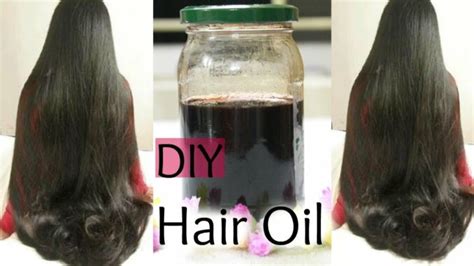Introduction
With the myriad of hair care products available, choosing the right base oil for your hair can be a daunting task. From nourishing argan oil to clarifying jojoba oil, this guide will delve into the benefits of 10 essential base oils, providing you with the knowledge to make an informed decision for your hair type and concerns.

What is a Base Oil?
A base oil, also known as a carrier oil, is a natural, plant-derived oil that forms the foundation of many hair care products. Base oils are typically rich in nutrients and fatty acids, which provide essential nourishment and protection for the hair. They can be used alone or as a base for adding essential oils or other hair care ingredients.
Benefits of Using Base Oils for Hair
Incorporating base oils into your hair care routine can provide numerous benefits, including:
- Moisturizing and nourishing: Base oils are rich in fatty acids, which help to hydrate and seal in moisture, reducing dryness and preventing breakage.
- Strengthening and repairing: The nutrients in base oils penetrate the hair shaft, strengthening and repairing damaged hair cuticles, resulting in improved hair elasticity and reduced split ends.
- Promoting hair growth: Certain base oils, such as castor oil, are known to stimulate hair follicles and promote hair growth.
- Protecting from environmental damage: Antioxidants present in base oils protect hair from damage caused by free radicals, UV rays, and other environmental stressors.
- Reducing inflammation and scalp irritation: Some base oils, like tea tree oil, possess anti-inflammatory properties that can soothe an irritated scalp and reduce dandruff.
10 Essential Base Oils for Hair
1. Argan Oil
- Benefits: Nourishing, moisturizing, hair growth promoter
- Hair types: All hair types, especially dry, damaged, and color-treated hair
- Key fatty acids: Oleic acid, linoleic acid, vitamin E
2. Coconut Oil
- Benefits: Moisturizing, detangling, split end reducer
- Hair types: Dry, curly, and coily hair
- Key fatty acids: Lauric acid, caprylic acid
3. Jojoba Oil
- Benefits: Clarifying, sebum-balancing, hair growth promoter
- Hair types: Greasy, acne-prone hair
- Key fatty acids: Oleic acid, linoleic acid
4. Castor Oil
- Benefits: Hair growth stimulant, strengthens hair follicles
- Hair types: Thin, damaged, slow-growing hair
- Key fatty acids: Ricinoleic acid
5. Avocado Oil
- Benefits: Nourishing, moisturizing, hair growth promoter
- Hair types: Dry, damaged, and mature hair
- Key fatty acids: Oleic acid, linoleic acid, vitamin E
6. Almond Oil
- Benefits: Moisturizing, detangling, hair growth promoter
- Hair types: All hair types, especially dry and damaged hair
- Key fatty acids: Oleic acid, linoleic acid, vitamin E
7. Olive Oil
- Benefits: Nourishing, moisturizing, hair growth promoter
- Hair types: Dry, damaged, and color-treated hair
- Key fatty acids: Oleic acid, linoleic acid, vitamin E
8. Grapeseed Oil
- Benefits: Clarifying, sebum-balancing, antioxidant
- Hair types: Greasy, acne-prone hair
- Key fatty acids: Linoleic acid, oleic acid
9. Tea Tree Oil
- Benefits: Anti-inflammatory, anti-dandruff, hair growth stimulant
- Hair types: Oily, dandruff-prone hair
- Key fatty acids: Terpinen-4-ol
10. Rosemary Oil
- Benefits: Hair growth stimulant, anti-inflammatory
- Hair types: Thin, damaged, slow-growing hair
- Key fatty acids: Camphor, eucalyptol
How to Choose the Right Base Oil for Your Hair Type
The best base oil for your hair depends on your specific hair type and concerns. Consider the following factors:
- Dry hair: Argan oil, coconut oil, avocado oil, almond oil, olive oil
- Oily hair: Jojoba oil, grapeseed oil, tea tree oil
- Damaged hair: Argan oil, coconut oil, olive oil, castor oil
- Thin hair: Castor oil, rosemary oil, almond oil, olive oil
- Dandruff: Tea tree oil, rosemary oil, jojoba oil
How to Use Base Oils for Hair
Base oils can be used in a variety of ways to benefit your hair:
- As a pre-shampoo treatment: Apply a generous amount of base oil to your hair and scalp, cover with a shower cap, and leave on for 30 minutes to 1 hour before shampooing.
- As a deep conditioner: Add a few drops of base oil to your regular conditioner and apply to your hair. Leave on for 15-20 minutes before rinsing.
- As a leave-in conditioner: Apply a small amount of base oil to the ends of your hair to moisturize and protect from damage.
- As a styling aid: Add a few drops of base oil to your styling products to add shine and reduce frizz.
Precautions
- Always do a patch test before using any new base oil on your hair to rule out allergic reactions.
- Do not apply base oils to your scalp if you have an open wound or infection.
- Avoid using base oils if you are pregnant or breastfeeding without consulting a healthcare professional.
- Store base oils in a cool, dark place to prevent spoilage.
Conclusion
Incorporating base oils into your hair care routine can provide a wealth of benefits for your hair. By choosing the right base oil for your hair type and concerns, you can achieve healthy, lustrous locks. Experiment with different base oils and methods of application to find what works best for you.
